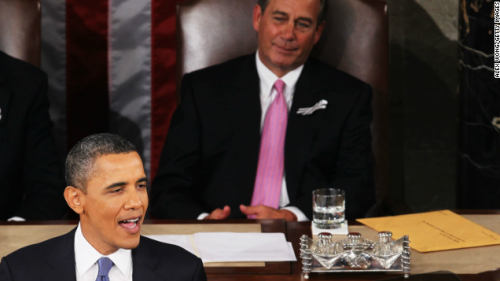Hope you enjoyed the Big Game. (God, that was awful. We’re better than that. Are we? Probably not.) Without further ado (or as people who want to sound smart and end up failing like to say, “Without further adieu,”) onto the Carnival:
(First post rejected because it came from 2011tax.org, the same people behind last week’s 2008tax.org. They’re getting closer.)
First real post is from the magnificent Rob Aeschbach, a/k/a The Military Financial Planner. Rob served in the United States Marine Corps, and laments that his fellow servicemen and women aren’t that good with money. We can’t imagine that they’re worse than the civilians we’ve met, but we’ll defer to Rob. He doesn’t submit every week, but when he does it’s a treat. His candor and bluntness are something we need more of.
It’s safe to say that erstwhile Army officer Jason at Hull Financial Planning is not part of Rob’s sample. If Jason isn’t our best week-in/week-out submitter, he’s in the top 3. This week, Part I of a 2-parter on the placebo effect and how it pertains to (irrational) financial decisions. Psychological benefits are only beneficial if they work. Too often, people in financial trouble prefer the taste of a sugar pill without checking to see if it’s laced with bromotrifluoromethane.
We don’t have favorite posts; they’re like our children, ranging from good and conscientious to failing and inconsistent, but we love them all anyway. That being said, our favorite type of post is the one that indeed reads as though it was written by a child. Take it away, Chris at Easy Extra Dollar. (Folks, read this excerpt aloud for full effect):
Running a business is not that an easy task. You have to think carefully that you will be handling a big responsibility though it is not that a big business. You waited for how many years to earn money and with that; you have to make sure that you will be spending your money in a sure and 100% assurance to earn more and will add an additional extra income.
What the hell? Chris’s About page says he has an MBA. We’d joke about what clown college gave it to him, but Manti Te’o went to Notre Dame and was named an academic All-American.
If we put Chris’s post side-by-side with Pauline’s at Reach Financial Independence, and asked you to guess which was the native English speaker, you’d get it wrong. We only wish Mademoiselle Paquin had been born in the United States so she could run for President. While hundreds of thousands of American (and European) students love to complain about their financial situations, Pauline embraced hers. She bought assets and sold liabilities, or did the student equivalent of same, living in humble conditions while she was young enough to prudently do so. She took one retail job after another to pay her way through school, didn’t take on any debt, and today is a Central American real estate tycoon while barely past the age of 30.
I find it hard to see value in a $150,000 degree.
If only everyone else did.
We wish we could run the comments that DQYDJ.net‘s operator appends to his weekly submissions, but they aren’t for public consumption. This week, Cameron Daniels announced his deleverage plans. He’s the rare cat who did take on student debt yet doesn’t regret it. He also has a financial defense for that absence of regret. Cameron wants to pay off his debts as slowly as possible, which we can neither unequivocally agree nor disagree with until we know what the interest rates are. But we’re leaning toward “agree”.
(Another post from Easy Extra Dollar’s Chris, this one on a different site. Sorry, you don’t roast someone twice in one night.)
Harry Campbell at Your PF Pro shares details of his upcoming honeymoon, as the Carnival of Wealth temporarily becomes Woman’s Day magazine. Alright, that’s only partially fair. He’s redeeming credit card points to visit Rome, Athens and Constantinople (it’ll re-Christianize one day, just you wait.) Good advice, but dammit Harry, you’ve got to get a bigger font.
A favorite urban legend from the 1990s was “The major tobacco companies have already bought vast swaths of marijuana fields in anticipation of its legalization.” Well, now look who’s laughing. While assessing the investment potential of several marijuana and ancillary stocks, Andrew at 101 Centavos crammed in not only plenty of worthwhile data, but every conceivable cannabis-related pun. Worth it just for the photo of Great Weed Pharmaceuticals’ quality control supervisor. Also, in classic Andrew fashion he forced us to reexamine our own viewpoint, in particular our Objectivist credentials:
Libertarian-minded types like to prattle on about the savings in the state resources and expenditures currently employed in enforcement and prosecution of drug offenses. They would not be required if pot were legalized. Sure, law enforcement officers’ time would be freed up to give the rest of us more speeding tickets.
In our own particular version of Galt’s Gulch, police would concentrate less on ticketing speeders and more on keeping slow drivers out of the passing lane.
This last one makes no sense, but his spelling and grammar are impeccable. From newcomer Dave at The New York Budget, a rationalization of living in The Worst City in America. This post attempts to draw parallels between different beers and aspects of personal finance. Dave keeps the specious blogger commandment to end off each post with a question, which is supposed to inspire people to leave comments. We’ve never seen a concluding query quite like this one:
What types of beers (or alcohol in general) remind you of personal finance?
Umm…Everclear and Dave Ramsey’s debt snowball? Because they’re both transparent ploys to destroy you? Sorry, we’re new at this.
Check us out on Investopedia and the Stacking Benjamins podcast. Adiós.




